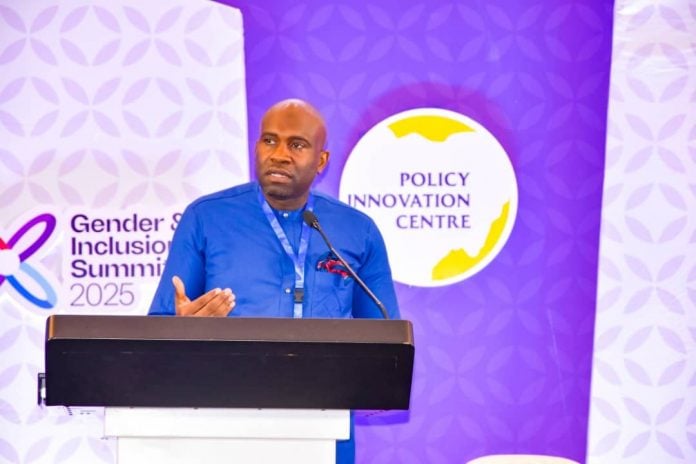As momentum around gender equality appears to wane across the globe, the Bill & Melinda Gates Foundation has delivered a pointed call for Nigerian leaders to put policies into practical motion, urging a shift from announcements on paper to tangible improvements in the lives of women and girls.
Bridging the Gap Between Words and Action in Gender Equality
While Nigeria has made significant commitments to advance gender equity, activists and development partners argue the country must now prioritize real-world outcomes—especially in women’s health and inclusive economic growth. At the 2025 Gender and Inclusion Summit in Abuja, convened by the Policy Innovation Centre (PIC), the Foundation’s Deputy Director of Programme Advocacy & Communications, Ekenem Isichei, pressed for a renewed sense of urgency and accountability among Nigerian policymakers.
Why Real Change Is Urgent: The Data on Declining Support
Isichei’s keynote speech came against the backdrop of concerning declines in foreign aid and program support for women’s health. Official Development Assistance (ODA) from donor countries to Nigeria has reportedly plummeted by 40 percent over the past year, according to the Gates Foundation. Even more worrying, funding targeted specifically at maternal and child health fell by an alarming 67 percent—meaning far fewer women and children will have access to essential health products and services compared to the previous year.
“We are witnessing a critical moment where the financial and policy momentum around gender equality is at risk of stalling,” Isichei observed. “For every three women in your local area, two now risk being cut off from vital healthcare resources that were available just a year ago.”
Understanding the Stakes: Impact on Poverty and Development
The human implications behind these numbers are stark. Women make up around 70 percent of Nigeria’s poorest citizens—a statistic that underscores the urgency of intentional policies and budgetary commitments to lift them out of poverty. According to Isichei, “Investing in women’s health and economic empowerment doesn’t just benefit individual families. The evidence shows that these investments ripple out to create healthier communities, stronger economies, and fairer societies for everyone.”
Local analysts point out that when women thrive, children have better access to schooling, nutrition improves, and household income grows more stable. In other words, supporting women is a proven pathway to boosting Nigeria’s development indicators across the board.
Summit Goals: From Dialogue to Delivery
This year’s Gender and Inclusion Summit brought together government representatives, private sector leaders, and civil society voices under the theme: “New Voices and New Approaches for Accelerating Inclusive Society.” Beyond rhetoric, attendees discussed pragmatic roadmaps: How can policies translate into funding, better service delivery, and measurable outcomes for women and girls?
- Institutionalizing Gender Equality: The Foundation advocates for permanent “gender desks” within government structures, integration of gender-responsive planning and budgeting units, and greater technical support for primary health care managers at the local level.
- Investing in Capacity: Isichei challenged Nigerian authorities to expand not just their ambitions but also the concrete skills and staying power needed to get things done. This means “equipping gender officers and local managers with real-time data, planning tools, and clear mandates,” as well as protecting and monitoring funds intended for women-led Micro, Small, and Medium Enterprises (MSMEs).
- Moving Beyond Annual Rituals: He argued that gender-responsive budgeting should not be a box-ticking exercise once a year, but a persistent, year-round framework for prioritizing and defending resources for women.
Financial Commitments: The Gates Foundation’s Pledge and the Need for Local Buy-In
Highlighting the Foundation’s own commitment, Isichei announced a planned investment of $2.5 billion by 2030 into research and programmatic support for women’s health in Nigeria and other developing countries. But he stressed that private sector actors and government agencies need to co-invest, not just rely on donor funds.
The call to action was echoed by Professor Olufolake Abdulrazaq, chair of the Nigeria Governors’ Spouses’ Forum (NGSF). She reaffirmed the forum’s pledge to champion gender equality, promising bold new initiatives aimed at breaking down persistent barriers preventing Nigerian women from reaching their full potential.
Expert Analysis: “Inclusion Is Smart Business”
One key message for the business sector: inclusion is not just a matter of charity or corporate social responsibility—it is smart economics. “We urge private sector leaders to see inclusion as an engine for future growth rather than a philanthropic gesture,” Isichei emphasized. Experts suggest that when more women participate in Nigeria’s economy, their voices and contributions translate to higher productivity, innovation, and competitiveness across industries.
Challenges Ahead: Ensuring Sustained Progress
Despite encouraging words, civil society organizations noted that meaningful inclusion demands more than high-level summits. “Civil society has moved gender issues onto the national agenda, but we need clear implementation timelines, public monitoring, and systems to hold leaders accountable,” said a representative from a leading Abuja-based NGO, during a post-summit roundtable.
Others pointed out that demand for wider access and equity must extend outside Abuja and Nigeria’s major cities, reaching rural and marginalized communities where gender disparities are often felt most acutely.
Broader African and Global Context
The challenges facing Nigeria are echoed across many West African and African countries, where funding gaps and policy bottlenecks threaten gains in women’s rights and economic advancement. Ghanaian development specialist Kwaku Mensah commented, “West Africa is watching how Nigeria scales inclusion; success here can inspire similar reforms regionally, triggering broader change.”
Globally, gender equality remains intricately tied to achieving the United Nations Sustainable Development Goals by 2030. Progress in Africa’s most populous nation matters far beyond its borders, shaping the continent’s trajectory as a whole.
What’s Next: Turning Promises into Progress
For those closest to the ground—women navigating Nigeria’s economy, grassroots activists, healthcare workers, and teachers—the ultimate measure of success will be whether promises translate into real improvements in daily life. As the summit closed, participants agreed that ongoing partnerships, transparent oversight, and investment in women’s skills and leadership are fundamental to sustaining momentum.
Looking ahead, the question remains: will this round of dialogue lead to structural change, or will the opportunity for real progress be missed?
How do you see the path forward for gender equality initiatives in Nigeria and West Africa? What would you like to see your leaders do differently? Join the conversation—share your insights and experiences in the comments or reach out directly to us!
Have a personal story or breakthrough on gender inclusion? Want to sell or feature your experience? We’d love to amplify your voice. Email us at story@nowahalazone.com.
You can also reach out for support at support@nowahalazone.com.
Stay informed – follow us on Facebook, X (Twitter), and Instagram.
Together, let’s build a more inclusive society—your story could inspire the change we need!










